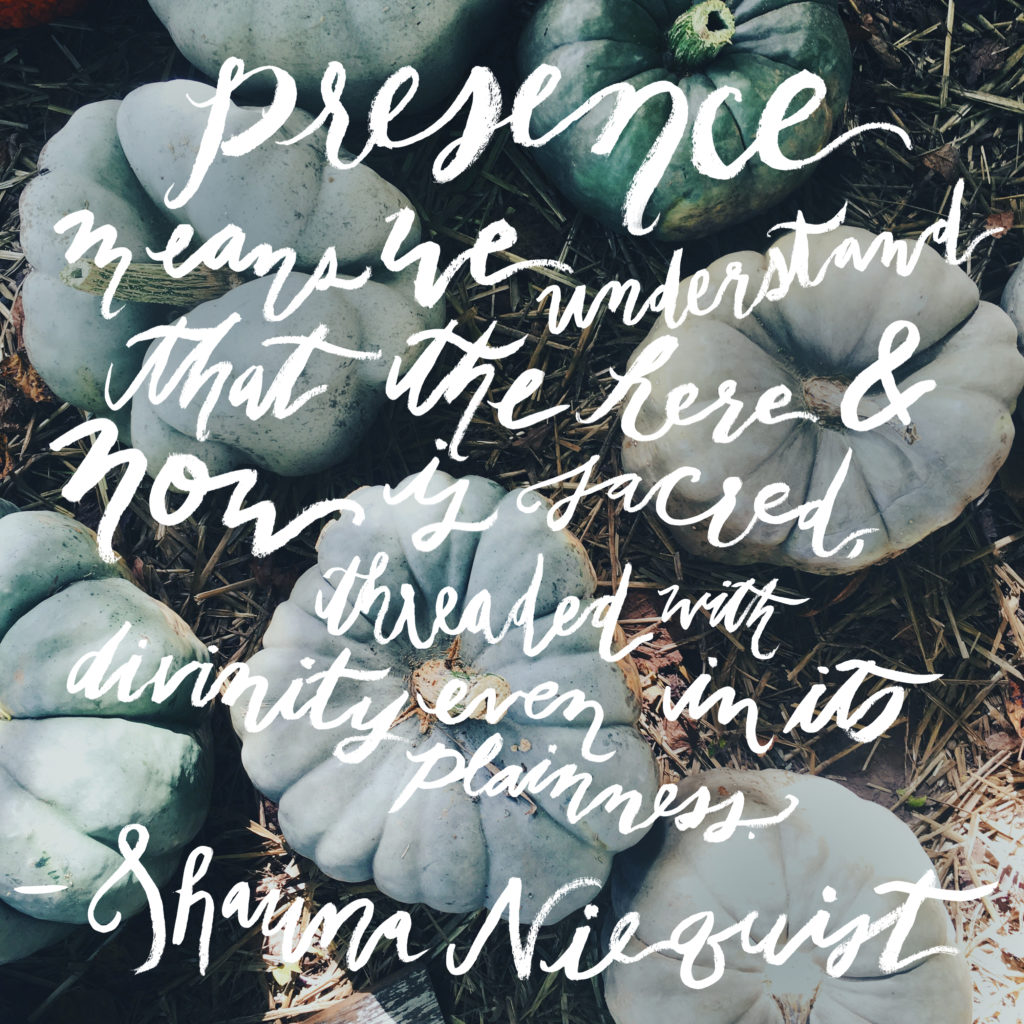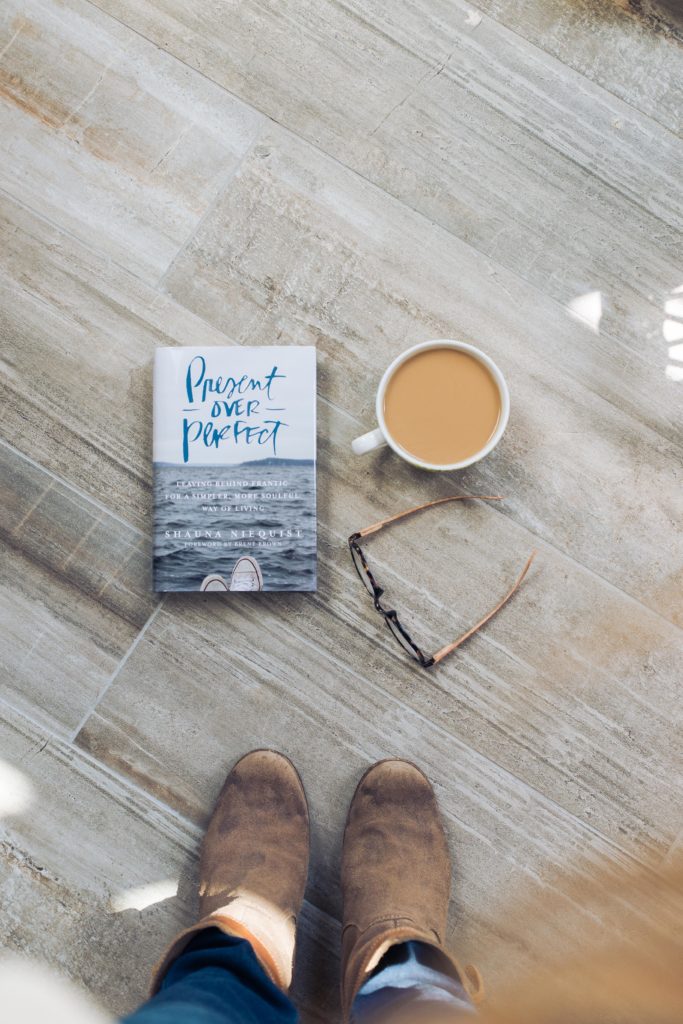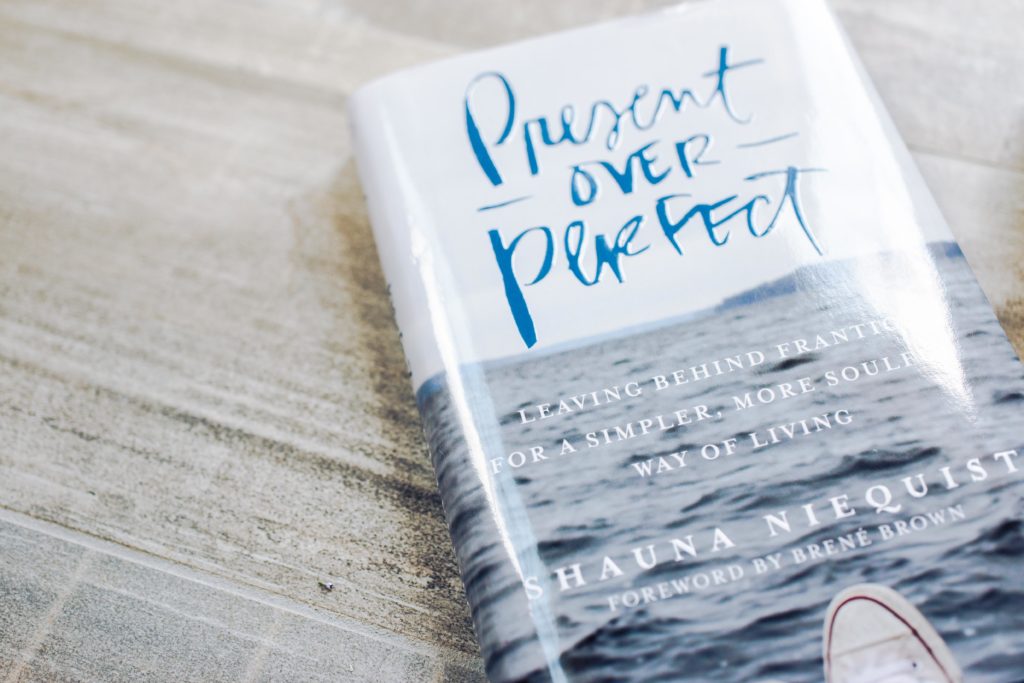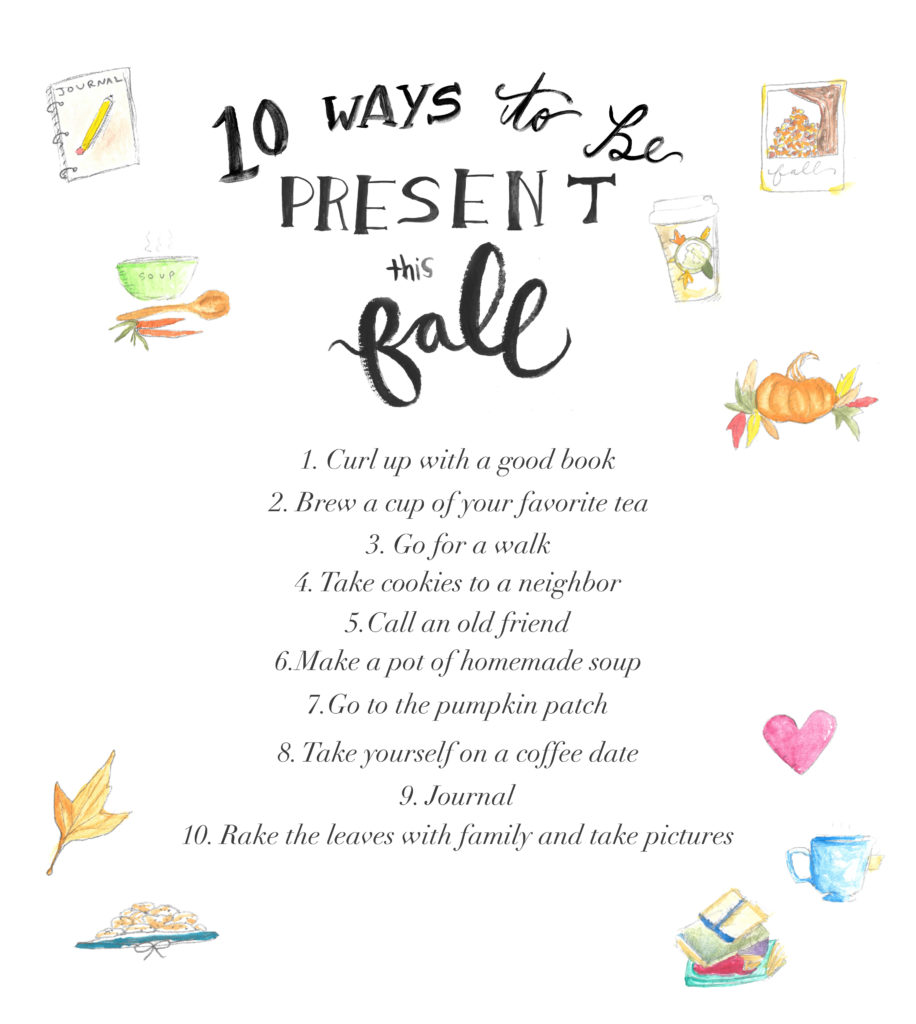
I went over to the conference book table and let my eyes fall on each title propped up against a stack of spines. I saw books with pretty covers that sounded entertaining. I saw books that sounded reasonably helpful for women my age. When I saw this book though, I got a feeling. Or rather, a big mixing bowl of feelings. Feeling number one came because my word for the 2016 year is Present. How apt to find a book written on my word for the year! Being “present” had been going really well for me at that point. I had quit a lot of things and had begun to take more time to take care of myself. I was on a presence roll. But feeling number two came more like an unwanted whisper; I knew my idea of presence had to be deeper than the thinking of taking the time to relax and say no to too many responsibilities. I didn’t reach for this book right away because I knew the words inside would convict me harder than a slap across the face.
I worried that I knew what this book would be about. I had heard plenty of “those” kinds of books… Surviving instead of thriving, striving for perfection, getting burnt out, accepting grace so you can breathe again–I’ve read that story in a lot of books. It’s a story I relate a little too well to. So well that I had started to slowly creep off into avoiding those books.
After all, grace is nice, but it doesn’t get the dishes done. Grace doesn’t make sure I look good in case I see someone I know in Target. Grace doesn’t always keep me from getting hurt. And yet, grace allows me to live forgiven every day. It’s what allows me to lay my head on the pillow at night and truly rest. It’s a dichotomy I must learn to embrace to let go of the heavy, human baggage I carry on my back.
And this book, I just knew, would be all the same. Grace, grace, grace. Books like these make me deal with my insides. The parts that I am really good at covering up and would like to keep covering up.
Despite my unsureness, this book ended up in my hands the whole weekend. As I read it, it was like Shauna had analyzed my life and written a book on it. She talked about her life before writing this book; a life of busyness but doing good things, a life of sickness but doing good things, a life where you are so tired, but you’re doing good things that make you look good and feel good to the point that you’re essentially addicted to the high of faux perfection. I could relate all too well.

Fast backstory: I like to be busy. Like, way too busy. Unhealthy busy. In the recent past years, I figured out that busyness is my coping mechanism against life. Being busy means I can keep running, running fast enough to keep everything around me in a blur so I can pretend I’m always okay, even if I’m not. This eventually led me to a place of coldness too bitter to bear. Tired of the girl who was always on the run, always saying yes, always feeling used (even though I gave permission to others to do so), always being told, “you’re so busy,” I began to walk away from this lifestyle. Piece by piece, like taking off ten layers of clothing in August heat, I finally started to create a more simple life. It takes time. It’s still a process, but I’m better. Confused, I slept more. I painted. I took more pictures, but didn’t share any with you. I kept my memories for myself. I prayed more. Awkwardly, but more. Fasted. Made good meals. Took baths and went shopping. I decorated my house. I cried about stupid, little things and didn’t apologize for the tears.
And I can’t describe what it’s done other than saying I’m more awake now. I’m more honest and happier with myself and with my life. I can think more clearly. I care less about what people think, and it has freed me to be in love with God. Finally, I can focus. Areas that were like looking through frosted glass are clear now. Being present isn’t some yogi term I picked up, and it’s not systematic or complicated. It’s simple.
For me, it’s inviting a steady income of God’s presence into my daily, messy, fleshy life while carefully choosing activities that invite abundance, rest, wholeness, and enjoyment in my days. Presence is now a huge deal to me.
This book, for me, didn’t end up being about grace like the others. This message was more like a warm, handwritten invitation slipped across the table from a friend after I cried salty, tired tears into my coffee. It was an invitation to accept that I have lived a lifestyle in the past where the motto of my life-altering busyness was, “I’m doing something important–” when in reality I was just too scared to slow down too much because what happens when my world stops spinning and gets too quiet? Can I simply exist and still feel valuable?

To the woman who notices that her life has lost it’s salt and that her ability to connect is dying, this message revives the sacred in the everyday from its grave. While not necessarily a book that concepts how to see the beauty in the mundane, it is more of rallying cry to go ahead and give in to dropping all of the unnecessary baggage on your shoulders and find your soul again through silence and just being. It opens a space, if you let it, to examine what you determine gives your life it’s meaning. It’s a book for someone looking for a “sea-change,” for someone who wants to better understand how to live from the soul.
Because it would be impossible for me to sum up every part of this book I benefitted from, let me at least write that present over perfect isn’t a gimmicky idea of choosing to let the chaos of the day slide and learning how to let yourself accept messy grace. That’s a nice idea, but this one runs deeper. It’s personal and somewhat psychological. It’s the idea that what you think God thinks about you will determine what you choose to value and honor in life. It will determine what you think your presence is worth in this world. If I’m being transparent, I’ve honored status more than I should. I like titles in front of my name because they bring me temporary assurance that I have talent and am interesting. I have trouble believing that my just being here is enough for God.
Here, I’m reminded that He doesn’t want my skills and ideas and I-can-do-this-and-this-and-this-for-you attitude; he just wants me. He just wants you. It’s actually that simple. We’re the ones who complicate it.
Shauna begins the book with this passage:
God hasn’t invited us into a disorderly, unkempt life but into something holy and beautiful– as beautiful on the inside as the outside.
-1 Thessalonians 4:7
If your “inside” doesn’t feel as beautiful as it looks on the inside, don’t be afraid to step into the expanse of silence and just being present God calls us to. It’s there that he strips away the accolades and thought patterns, the comparisons and wrong ideas about ourselves, the words that pierced our hearts, the beliefs that entangle us, the sin that chokes away our life. It’s in this presence that we can learn to breathe again for those of us that forgot what fresh air tastes like. It’s here that our senses are renewed, along with our body and soul. Pretty words aside, taking small steps towards a more present lifestyle isn’t difficult or painful. When I first began to adopt this lifestyle, I just started by cutting out an hour or so in my week to do something relaxing or fun when I started to feel overwhelmed. It has helped me to be more self-aware, and to learn how to see self-care even as a blank canvas for communion with God. Taking two hours to make a delicious meal can become a quiet conversation with the Lord; journaling for a few hours is intimacy with him; taking the long way home and singing is worship. He is always there if we are willing to step into presence.
